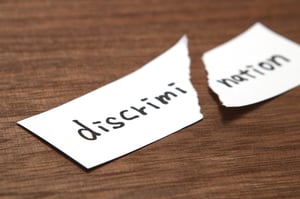 A common concern for people who are filing for chapter 7 and chapter 13 bankruptcy is whether others will find out about their bankruptcy, and if so, whether they will get discriminated against for filing. One concern people often have is whether friends or family members will discover that they filed for bankruptcy.
A common concern for people who are filing for chapter 7 and chapter 13 bankruptcy is whether others will find out about their bankruptcy, and if so, whether they will get discriminated against for filing. One concern people often have is whether friends or family members will discover that they filed for bankruptcy.
Will My Bankruptcy Be Listed in the Local Newspaper?
Many times, people wonder if their case will be listed in the local newspaper or other public media. Technically, when someone files for bankruptcy, it is made public record, which can be found on the Federal Court’s official website (known as “Pacer”). However, in order to see that public record, a person would have to go through the trouble of creating an account with that website and pay for its use. This is not likely to happen, so a person’s bankruptcy case is likely to stay unknown to the general public and their community.
Will My Bankruptcy Affect My Employment?
Another concern people often have is whether their bankruptcy will have a negative impact on their employment situation. Employers are more likely to look up the public records to see if someone has filed for bankruptcy and may even ask them if they have filed. Fortunately, Section 525 of the Bankruptcy Code expressly prohibits employers from discriminating against a person solely because they filed for bankruptcy. This prevents employers from taking such actions as denying employment or firing someone just because they file a bankruptcy case. This is true whether the employer is the government or a private entity.
Section 525, not only protects bankruptcy filers from employment-based discrimination but also protects them from all discriminatory action taken by any State, local, or Federal governmental entities. This means the government cannot take any discriminatory adverse actions against a person, based solely on the fact that the person filed for bankruptcy, including, but not limited to, denying public benefits and grants, denying licenses to be issued (i.e. a driver’s or liquor license), denying contracts with the government, and excluding a person from government-guaranteed student loan programs.
Private Entities May Discover Your Bankruptcy
What about private entities that may discover the bankruptcy and may wish to discriminate against someone who filed for bankruptcy? Unfortunately, private entities are generally free to discriminate against those who file for bankruptcy, with the exception of private employers, as previously discussed. Chapter 7 bankruptcies remain listed on a person’s credit report for 10 years, after they receive their discharge, and chapter 13 bankruptcy filings stay on one’s report for 7 years. When applying for a loan, the lender will insist on reviewing the person’s credit report and is legally permitted to deny a loan, at their discretion, based on the bankruptcy.
Can I Be Denied a Lease Agreement By a Landlord
Likewise, a landlord has the right to deny a lease agreement with a potential tenant who files for bankruptcy. However, there are many private parties who are willing to rent to, or extend financing to, despite the bankruptcy filing. Creditors and landlords take into consideration other factors such as the person’s income, their ability to make a large down payment/deposit, and whether the person has a co-signor/co-lessor.
It is notable, that while the bankruptcy filing is reported on a person’s credit report for 7 to 10 years, this does not necessarily mean that the person’s credit score cannot drastically improve over the course of that time. While it is true that a person’s credit score will typically greatly decrease upon receiving their discharge, this score can be built up relatively quickly, so long as they are careful about managing their debts, and take affirmative action to improve credit, after the bankruptcy.
In many cases, the cost of not filing bankruptcy is that a person’s credit score will be worse overall, in the long run, if they choose not to file bankruptcy, due to the fact that they cannot keep up with their monthly payments. Therefore, the benefit to getting rid of lots of debt in a bankruptcy often greatly outweighs the temporary negative impact on their credit score.
CALL NOW FOR A FREE STRATEGY SESSION FROM A MN BANKRUPTCY LAWYER AT LIFEBACK LAW FIRM
This is just a generalized overview of the topic of discrimination in bankruptcy. A person should consult an experienced bankruptcy attorney to discuss these issues in greater detail and to determine whether a bankruptcy will be in their best interest. Visit us at LifeBackLaw.com.


